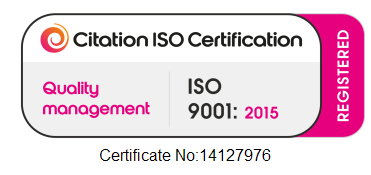Staff Profile – Lisa Ward, Senior Social Worker, Substance Misuse.
Lisa loves her job! She has worked within the drugs and alcohol recovery sector since graduating from the University of Lincoln in 2011.
From school, Lisa went into hairdressing until the age of 27 when she decided to re-train, go back to college for an access course, then on to University to complete a BSc. Hons. in Social Work.
It was Lisa’s second work placement, working within the recovery sector which confirmed the direction her career would follow.
Lisa worked in a variety of locations across East Yorkshire and Hull, firstly as a volunteer, then finding a part-time position and full-time in Goole before gaining a promotion to Senior Social Work at Baker Street in Hull City Centre.
Lisa now supervises 5 members of the team and supports social work students as a Practice Educator.
To find out what it’s like being a Social Worker in Substance Misuse, we asked Lisa a few questions.
Why did you choose this area of social work?
“Whilst at University, we go through all of the career paths leading from Social Work; the elderly, working with adults and children in mental health, learning and physical disabilities, school non-attenders and the homeless. I enjoyed learning about each area, but when I was placed within drugs and alcohol, I knew this was the path for me as it seemed like an area I could help people the most.”
.jpeg)
Can social workers transfer between fields?
“Yes, absolutely! There are so many different areas of knowledge and skillsets that are vital in supporting recovery. The training and development is fantastic at ADS, so anyone making the transition would be fully supported, shadowing myself and colleagues.”
What is it about this area?
“You are definitely helping people. Seeing their recovery journey and helping to make it work is amazing. Also, there is so much variety, we work with many different individuals who all have their own care-plan needs. Our service is very person-centred so each day is different, I can be working with individuals, family members or vulnerable adults. I get so much satisfaction, seeing a person come out of the other side of their substance misuse.”
Who are the people that you work with?
“I work with people from all walks of life. The important message is that substance misuse can and does affect anyone. We work with many professional people, even doctors, nurses, lawyers, etc. Also those who’ve lost their jobs and struggled to move on or change.
“The pandemic had a major impact on increased alcohol use. People are still approaching us everyday, having recognised their increased consumption has turned into a problem. Many of whom worked from home and started drinking earlier in the day and more often, and now feel this has gone beyond their control.”
How do people come into the system?
“The majority self refer, which is positive because they really want to get help. A person may have recognised that they have an issue with drugs or alcohol and already tried to help themselves. Generally, they have tried this first before reaching out for professional support. So it can be a GP referral, family members, other professionals and hospitals.”
Which other services do you work with?
“Lots of services such as Hull and East Yorkshire Mind, The British Red Cross, adult safeguarding teams, housing and financial support, children’s team, social prescribing initiatives and I work very closely with GPs.”
How is your case load?
“It’s very busy but it is variable as people move through the service, but they can also enter at different stages. From in-patient medical detox and residential rehab to community rehab and one-to-one support, or a combination of all three. It all depends on the individual and how they respond to the goals we set — this is what I particularly enjoy about this role.”
Stress is often associated with the job of a social worker. Do you agree?
“For me the positives far out-weigh any stress I experience. I love this job and I feel very passionate about being able to help others. None of us are working alone, we have an amazing team for support.
“This role is Monday to Friday, so I get my weekends free as opposed to being ‘switched on’ or on-call all of the time, so I have a good work/life balance.”
Do you receive ongoing training?
“I complete lots of different courses for the sector. There are many personal development opportunities. Right now I am aiming for the Institute of Leadership and Management certificate and have already completed teacher training certificate.
“There are always development opportunities and new courses available. Things are constantly changing so it feels good to know that I am on top of this and I feel supported by ADS to develop.”
What are the main challenges of the role?
“Sadly it doesn’t always work out for people. Unfortunately, we do sometimes lose our clients and this is very hard after working with someone so closely but in some cases, complications with physical and mental health can be difficult to overcome.
“It doesn’t happen very often, but sometimes people relapse. Although working relationships are open and honest from the start, some people feels like they’ve failed. In this case, we can always review their plan and try a different approach. It’s never too late to try again.”
What would you say to anyone considering a career in recovery?
“If you want a job where you can help people and see visible changes as a result of that support, recovery support is a great career option. It’s unpredictable (in a good way) and we face interesting challenges every day which make the job interesting.
“When I first started in this field I felt fearful about substance misuse. Some people have criminal history but what I quickly found was that our service users want to turn their lives around and I am here to support that.”
Is ADS a good employer?
“ADS is an outstanding employer! I’ve been here for happy 10 years. I am fully supported and encouraged to develop and given time to do so.







